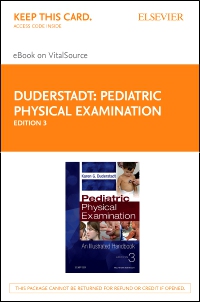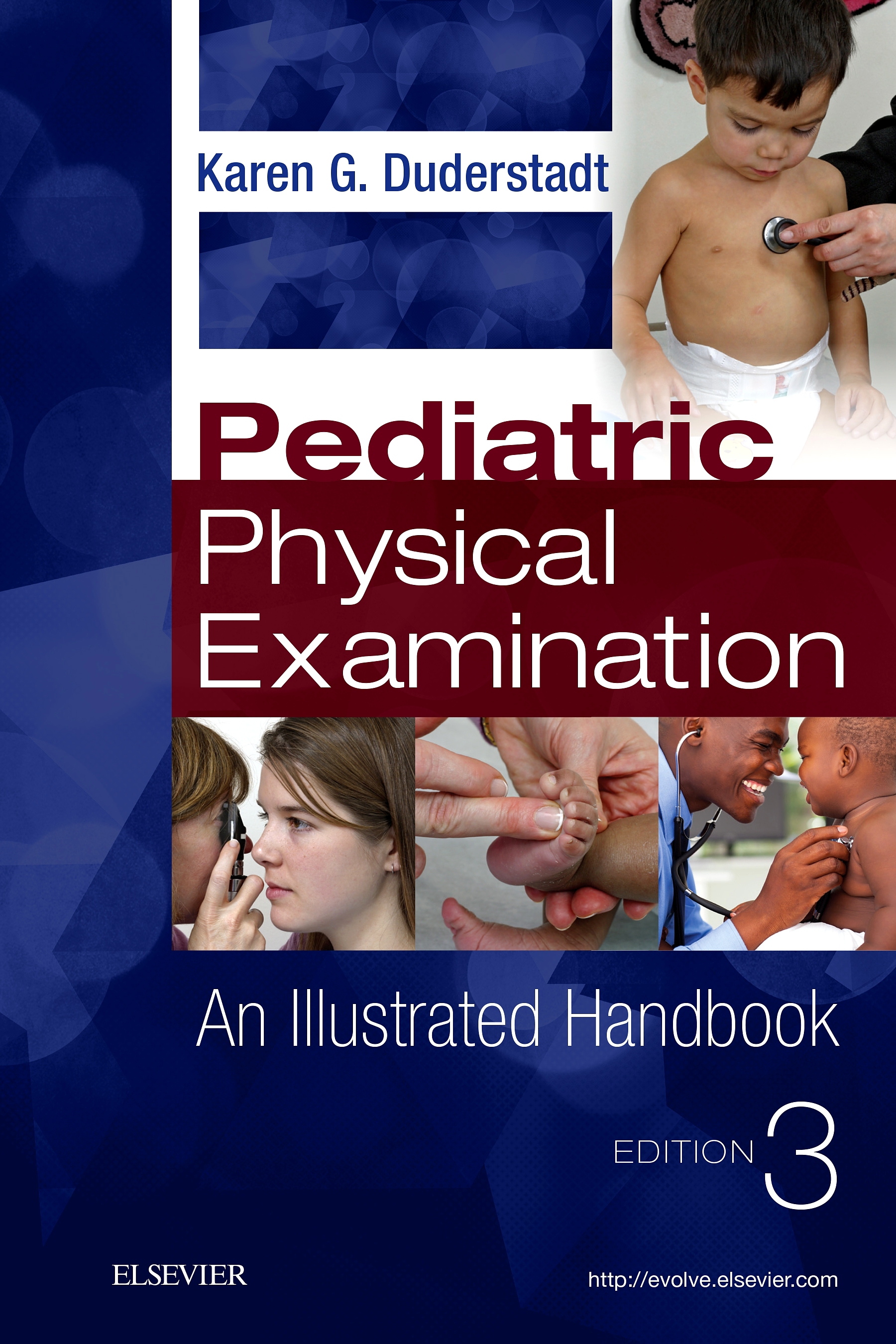
Pediatric Physical Examination - Elsevier eBook on VitalSource (Retail Access Card), 3rd Edition
Elsevier eBook on VitalSource - Access Card

Now $58.89
Known for its accuracy, consistency, and portability, Pediatric Physical Examination: An Illustrated Handbook, 3rd Edition teaches the unique range of skills needed to assess children of all ages. Spiral-bound for quick reference in clinical settings, this photo-rich, step-by-step guide to physical examination for advanced practice providers prepares you to expertly examine children from birth through adolescence. Body system chapters begin with fetal development and take you through the key developmental stages of childhood. For infants and young children, Duderstadt uses the quiet-to-active approach favored by pediatric experts and considered more effective for this age-group than the traditional head-to-toe approach used for adults. This edition features a new chapter on newborn physical examination, expanded coverage of skin conditions and new Red Flag highlights that help you recognize high-priority health issues.
-
- Expert guidance for the pediatric exam employs the quiet-to-active approach to the examination and assessment of infants — including preterm infants — and young children. This pediatric assessment approach, which starts with listening and moves on to touching, yields the best results in this age group.
- Richly illustrated in full color to help facilitate learning, with more than 300 photos and drawings that familiarize you with assessment techniques and common assessment findings.
- Easy-to-use two-column format provides quick access to concise guidance for the pediatric physical exam.
- Quick-reference special features, including:
- Information Gathering tables highlight questions and data needed from the patient/guardian, with questions conveniently separated by age group, to guide history-taking.
- Concise Conditions tables summarize common abnormal findings for each examination area.
- Pediatric Pearls highlight effective physical examination findings and techniques gleaned from years of expert practice.
- Family, Cultural, and Racial Considerations sections address the increasingly important areas of family and cultural assessment to prepare you for differences to anticipate when assessing children of various cultural or racial groups.
- Evidence-Based Practice Tips highlight useful research findings that guide clinical practice.
- Bulleted Summary of Examination lists at the end of each examination chapter highlight key assessment points associated with each body system and serve as a convenient learning aid and quick reference.
- End-of-chapter Charting examples demonstrate how to record physical examination findings in the health record and familiarize you with documentation language and format.
- Convenient spiral binding lets you lay the book flat or fold it back for easy visualization and quick reference in clinical settings.
-
- NEW! Completely new Newborn Assessment chapter equips you to provide comprehensive assessment of newborn patients
- UPDATED! Expanded coverage of skin conditions equips you to effectively assess the common pediatric skin conditions that you will encounter in day-to-day practice
- NEW and UNIQUE! Red Flag feature alerts you to recognize such issues as trauma, neglect, health issues related to conflict-related geographic displacement, and other high-priority health issues that practitioners encounter (e.g., croup, developmental delay)
- UNIQUE! Interprofessional Collaboration feature promotes engagement with other healthcare and non-healthcare professionals, such as Occupational Therapists, Physical Therapists, physicians, medical specialists, counselors, or other professional resources
- NEW! Updated content throughout, including the latest coverage of gender considerations, autism spectrum disorder screening, and electronic documentation (charting via the EHR)
-
Unit I: General Assessment
1. Approach to Care and Assessment of Children and Adolescents
2. Physical Assessment Parameters
3. Developmental Surveillance and Screening
4. Comprehensive Health Gathering
5. Environmental Health History
6. NEW! Newborn Assessment
Unit II: System-Specific Assessment
7. Skin
8. Heart and Vascular System
9. Chest and Respiratory System
10. Head and Neck
11. Lymphatic System
12. Eyes
13. Ears
14. Nose, Mouth, and Throat
15. Abdomen and Rectum
16. Male Genitalia
17. Male and Female Breast
18. Female Genitalia
19. Musculoskeletal System
20. Neurological System


 as described in our
as described in our 